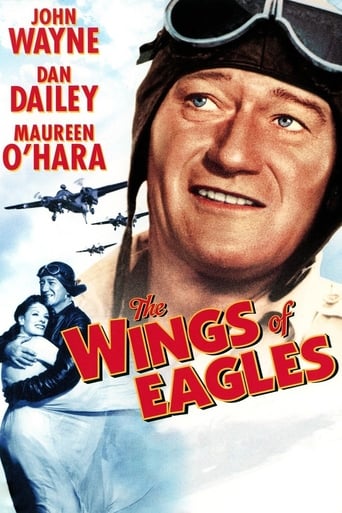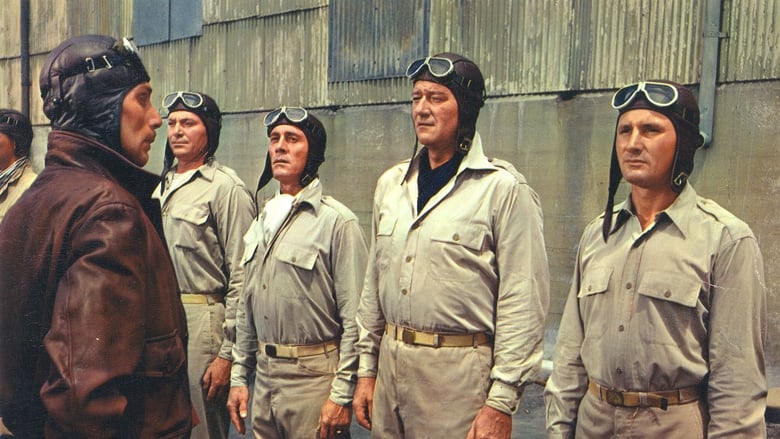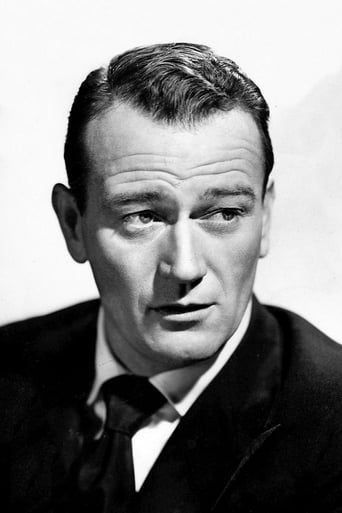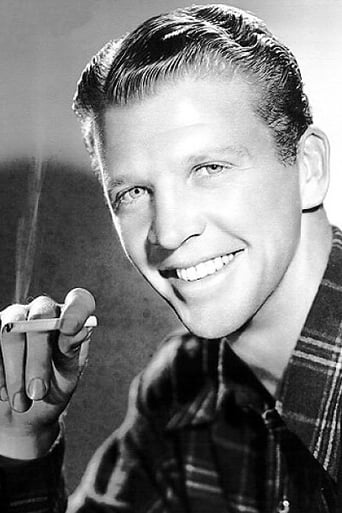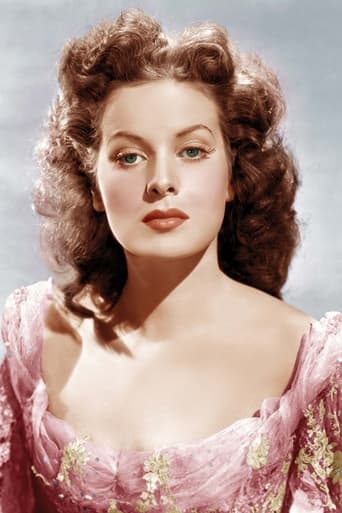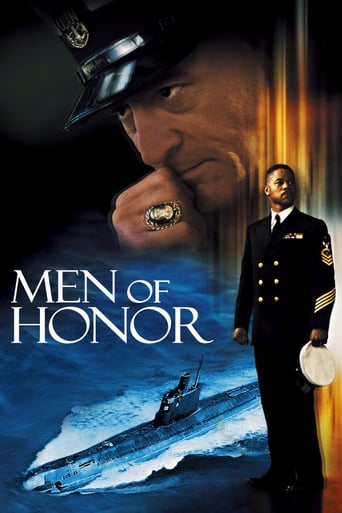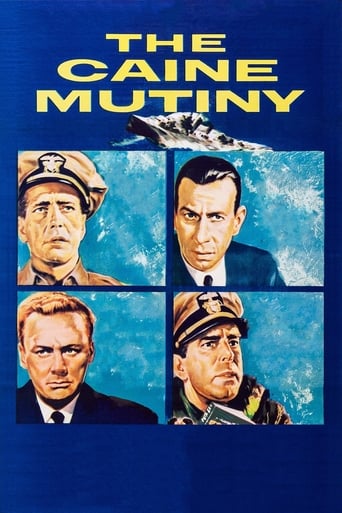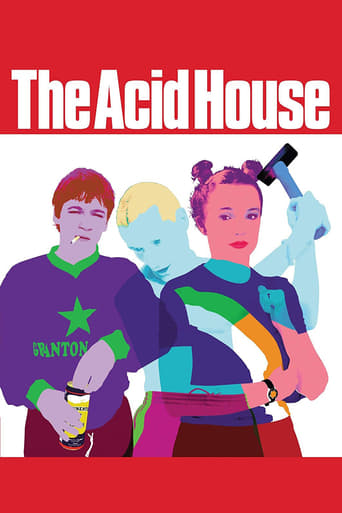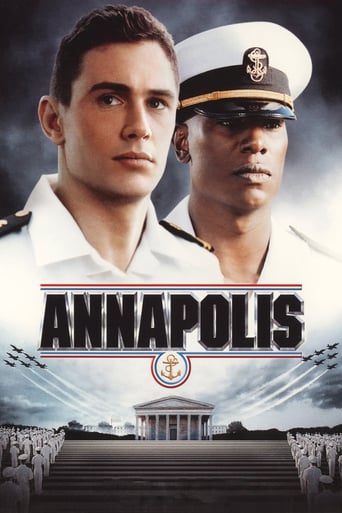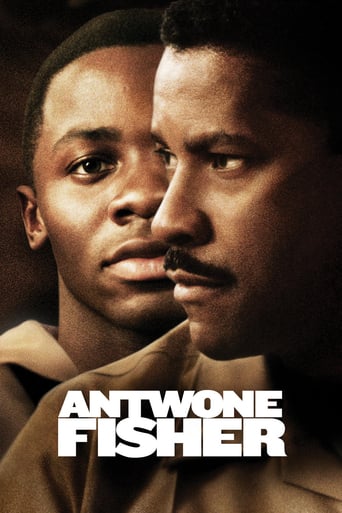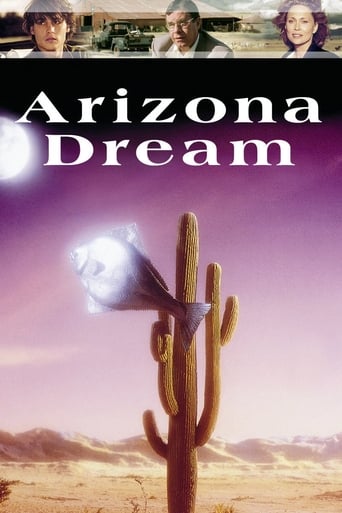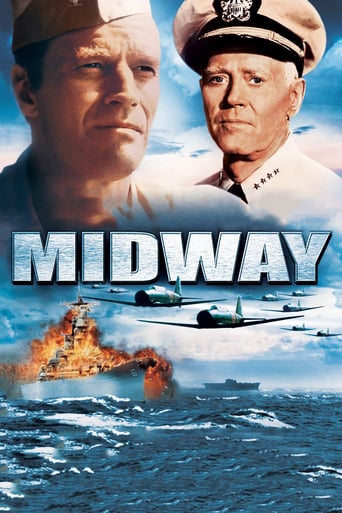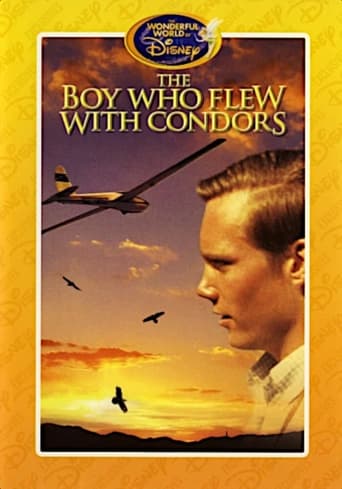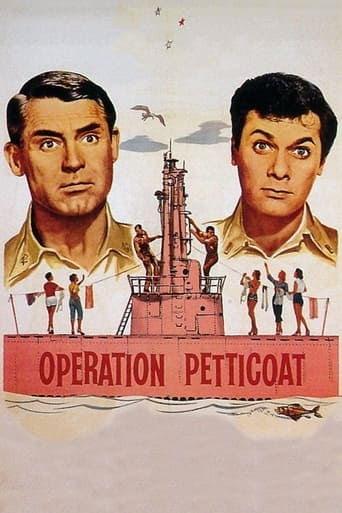The Wings of Eagles (1957)
The story of Frank W. "Spig" Wead - a Navy-flyer turned screenwriter.
Watch Trailer
Cast


Similar titles
Reviews
Truly Dreadful Film
As Good As It Gets
A lot more amusing than I thought it would be.
This movie was so-so. It had it's moments, but wasn't the greatest.
Frank "Spig" Wead's life story, as directed by real-life friend John Ford, starring John Wayne as the hot-shot aviation expert who transforms the U.S. Navy in the 1920s with his piloting prowess, rivaling (but not alienating) the Army in aviation power; later, after suffering a spinal cord injury and a separation from his wife and children, Wead discovers an untapped talent for writing, becoming a successful screenwriter and playwright! Ford bounces jovially from aerial slapstick to human drama to personal tragedy to wartime chaos, and, despite some bumps, keeps this biography lively and colorful. John Wayne and Maureen O'Hara, both of whom toss cigarettes and matches away with abandon, are reassuring as husband and wife, and though O'Hara's initial exit is perplexing, Ford's handling of the narrative doesn't jar us with unresolved feelings. The third act during WWII is just a jumble of patriotic scenes, but Wayne's expression at the finale is surprisingly genuine. He and Ford do Wead's incredible story justice. **1/2 from ****
This film is an effort by famed Director John Ford to pay homage to a close personal friend of his. Ford knew Frank "Spig" Wead very well and, from what I've heard and read, the Director pulled no punches in his portrayal of his friend. Wead was very influential in making Naval Aviation a force before WWII. When the war began, he rejoined the Navy, having been medically retired several years before. He worked further with the marriage of planes and ships, also coming up with the idea for "Jeep" carriers. I've wanted to review this film in the past, but couldn't come up with a proper explanation of how Ford pulled it off. Another reviewer coined the perfect term - "warts and all". Wayne does a fine job portraying Wead. His long-suffering wife is played by Maureen O'Hara. Wead was married to the Navy body and soul, but to his wife a whole lot less, although he loved her. Wayne and O'Hara were, in my opinion, a completely compatible acting duo. They made several films together and they just seemed to work so well together. Ford took the time and made the effort to show his friend as the imperfect human being that he was. His foibles and failures are shown, along with his successes. This is an altogether enjoyable biography.
All the critics have called John Ford's humor "broad" and I guess this is a pretty good example of what they mean. The opening scenes involve ancient float planes, a Stutz Bearcat, people falling into water, and a crash into the swimming pool at the Admiral's tea party. (Tea party!) Subsequent scenes involve gala fist fights between matched hordes of Army and Navy pilots, led by Kenneth Toby and Wayne respectively. There are cakes smashed into faces. The whole thing could have been a silent comedy.And yet the humor, by no means ever sophisticated, is pretty funny at times, and not always slapstick either. A good example is the scene in Spig Wead's (John Wayne's) office, with Pincus (Tige Andrews) and Carson (Dan Dailey). Dailey is having difficulty trying to make a long-distance call. Andrews is sitting with his shoe off. Wayne asks what's wrong, did he stub his toe? "Ah, no," says Andrews, "ya see, I keep my money in my shoe and every time I step on it --" and he's interrupted when Admiral Moffat enters the room. Wayne, Dailey, and Andrews snap to attention and listen to the Admiral's speech. There is a brief pause after Dailey suddenly shouts into the phone, "Why don't you GET OFF THE PHONE, you dumb head!" In the sudden silence everyone stares at Dailey who then looks embarrassed and apologizes to the Admiral. When the Admiral has finished his speech to his respectful listeners he turns to leave the room and notices Pincus, a mere enlisted man, goes over to him and greets Pincus warmly. Pincus smiles easily, shakes the Admiral's hand, and inquires after his family. "How's da wife, sir? And dem lovely kiddies?" "Fine, fine. Good to see you, Pincus," says the Admiral and exits. Wayne and Dailey gape speechless at Pincus before getting back to business.I've described this scene in extenso because it could NOT have come from a silent comedy. None of the humor is physical. It's what might be called interactional humor. And Ford explains absolutely none of it. We have no idea why Dailey began shouting into the phone during the Admiral's speech, or what the hell kind of background the Admiral and the lowly Pincus share. There is no set-up for the gags whatever. They come as a shocking surprise and that's what makes them funny.There's a similar unstated quality at the climax of the film. Dailey has saved Wayne's life by taking the bullets himself. He winds up in sick bay playing poker with the other patients. Wayne visits him to thank him. The two have been lifelong friends. Ordinarily, under these conditions, a viewer expects to see a lot of sentiment, even between two plain-speaking macho loudmouths. Instead, Dailey brushes off Wayne's thanks brusquely. And later the two don't get together for Wayne's retirement from the ship and from the Navy after a heart attack, as if Wayne were leaving a drinking party for a few minutes to visit the bathroom. The sense of loss -- of almost tragic finality -- is underscored by the absence of any emotional display. And it is left unexplained by Ford, just as Dailey's phone call and Pincus's friendship with the Admiral was. This is anything but a routine scene.It's not among Ford's best films. He wanted to call it, "The Spig Wead Story," but the studio objected that no one would want to see it and they were right. Spig Wead sounds like a quarterback for Notre Dame. And the script, following Wead's real life meandering, is all over the place, switching in the middle from a service comedy to a complicated and unfocused story about a screen writer. And it doesn't tell us much about Wead's second career. "I didn't want to make it," said Ford about the movie, "but I didn't want anybody else to make it." Probably no one else would have made it.The romance between Wayne and O'Hara is handled clumsily. They're forever breaking up and getting together again -- or almost getting together. O'Hara is, as always, drop-dead gorgeous in Technicolor. And I doubt that anyone but Ford could have forced John Wayne to doff his toupee. Yet the acting itself is schematic, partly because the dialog is so burdensome. Who could possibly have made believable Wayne's lines after he has fallen down the stairs and broken his back? "Don't move me. My back. Can't feel anything. Call . . . hospital. Navy . . . hospital." Sounds like . . . comic book. At one point in the film, Ford ridicules himself ("John Dodge") instead of someone in his cast.The director was beginning to run out of steam by this time. He was over 60 and had a lot of scar tissue. Still, the movie is worth watching.
I feel like I'm missing something...Spig sacrifices his personal life with that bad-ass Maureen O'Hara because of his sense of duty to the Navy. Maureen is smoking all the time because she's frustrated. His daughters are these barely - seen cutie pies. His real love affairs are with the Navy, and by extension with his colleagues. Dan Dailey does the kind of Ford extension of the Walter Brennan surrogate wife thing. And plays the hell out of the Ukelele. Ward Bond does a cool John Ford impression. The Army vs. Navy fights are that kind of usual Ford free-for-all that later becomes the subject of Donovan's Reef. They're very stylized but not particularly compelling. Some people put this one up with Ford's best. Why?

